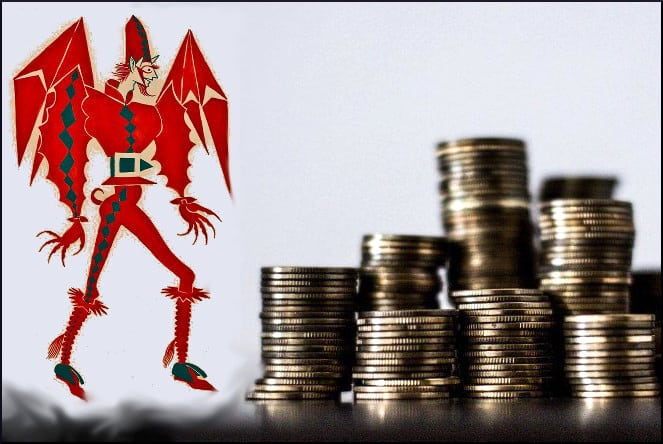
“Sin tax” is a strange artifact of capitalism that decrees the consumer must pay an extra fee when purchasing certain selected goods that are deemed harmful to society, or at least that society very much wants to discourage. Examples are alcohol, tobacco products, gambling, pornography, firearms, and cannabis.
Excise taxes are pre-figured into the unit price, and paid at the point of sale. An example is the tax on gasoline, which one might think is intended to discourage unnecessary driving, since the wars conducted to assure an unfailing supply of oil cost American lives. The aim is not so lofty, however. It’s just to pay for roads.
Indoor tanning treatments also come with an excise tax, the reason being anybody’s guess. A sin tax can be imposed by both federal and state governments, and in exceptional cases might actually benefit the local community. For instance, Nevada makes so much from taxing gamblers, there is no state income tax.
An excise tax is a regressive tax, meaning that if a millionaire and a homeless person both buy identical packs of cigarettes, they pay an identical tax. In other words, the poor are disproportionately penalized, which some people see as a flaw. Others see it as a perfectly logical feature, because the pauper’s medical costs will be borne by public funds, whereas if the rich person gets cancer, he or she can pay for treatment. What they fail to grasp is that even when people with harmful habits are insured, their costs make the rates go up for all the other insured people.
Not my problem
In America, we have gotten used to the idea of sin taxes, which most people seem to be okay with, because they either don’t self-identify as sinners, or because (as in the case of the tanning beds) they may not even know about the built-in tax. According to Investopedia:
Society accepts sin taxes because they affect only those who use sin-taxed products or engage in sin-taxed behaviors. When individual states run a deficit, a sin tax is generally one of the first taxes recommended by lawmakers to help fill the budget gap.
Authorities justify sin taxes by claiming that the use of unhealthful products is reduced. That may or may not be an accurate perception, but either way, acceptance is sad for America, which was, after all, founded on tax resistance. In states where cannabis products have been decriminalized, many people are so grateful and relieved to be legal consumers that they gladly accept an unprecedented level of taxation.
On the tobacco front, the Master Settlement Agreement (MSA) was seen as a great accomplishment, but while the funds collected by the states have actually done very little for Americans, the provisions actively harm people in other countries by incentivizing manufacturers to sell more and more nicotine overseas. According to one research paper on MSA:
By applying only to U.S. sales, and by excluding coverage of production for export sales, thus lowering the cost to the companies of exported cigarettes relative to cigarettes produced for domestic consumption, the MSA may have provided an incentive for participating firms to increase their exports…
Many drinkers and smokers consciously or unconsciously believe that they should not. There is plenty of room for self-deception, because people think, “Well, I don’t really drink that much, so what do I care?” Those who acknowledge that they drink a lot may be okay with kicking in a little extra, because it’s only right that they should help pay for the Jaws of Life to extricate victims from accidents caused by drunk driving. It is difficult to arouse similar guilt in someone who just wants a bottle of soda pop.
Your responses and feedback are welcome!
Source: “Sin Tax,” Investopedia.com, 05/03/18
Source: “Impacts of the Master Settlement Agreement on the tobacco industry,” BMJ.com, 2004
Photo credits: Pedro Ribeiro Simoes on Visualhunt/CC BY; Visualhunt.com

 FAQs and Media Requests:
FAQs and Media Requests: 











